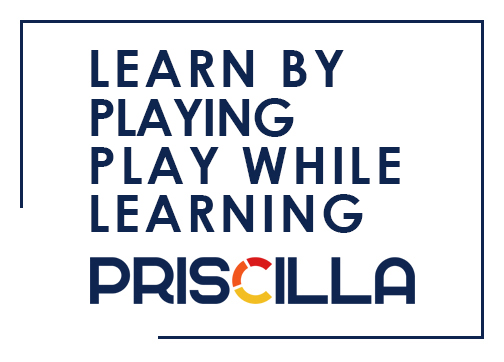The educational micro-learning platform Priscilla was created in accordance with the objectives of the project. The Priscilla platform has become an integral part of teaching at the universities participating in the project in study programs to train computer science professionals, teachers and related fields of study
The platform uses the following state-of-the-art approaches to education:
- supports active learning in all forms,
- provides content through micro-lessons with immediate verification of understanding of the content in the form of various types of interactive tasks,
- provides automated control of student feedback programs,
- contains a mechanism for implementing gamification (earning badges for achieving set goals, displaying rankings, competitiveness),
- promotes learning in the community through peer-to-peer assessments and comments micro-learning elements,
- enables switching between the national languages of the participating partners,
- obtains feedback in the form of evaluation of the provided content directly by students,
- analyses educational data following current approaches of Learning Analytics to support decision-making and select the appropriate form of intervention.
The platform is based on the ideas of several existing solutions and is unique in its scope. The overall concept and architecture were published in the research papers, the list of which is published on the project website.
The following categories and courses were created in the Priscilla platform during the projects realization:
FITPED-AI (2021-2024)
- programming languages
- O1 – AI support in programming languages
- artificial intelligence fundamentals
- O2 – Ethical and social aspects of AI
- O3 – AI introduction
- O4 – Data Preprocessing Techniques
- O5 – Knowledge Discovery
- artificial intelligence domains
- O6 – Machine Learning
- O7 – Deep Learning
- O8 – Natural Language Processing
- O9 – Leaning Analytics
- O10 – AI in cyber security
- O11 – Recommender systems
FITPED (2018-2021)
- programming languages
- O2 – Java (fundamentals, classes),
- O3 – C/C++ (fundamentals, advanced, specific),
- O5 – Python (fundamentals, intermediate, classes),
- web languages
- O6 – HTML,
- O7 – CSS,
- O8 – JavaScript ,
- O9 – PHP,
- data manipulation languages
- O4 – SQL and Database Design,
- frameworks, testing and git
- data mining
- O15 – Data Mining.

